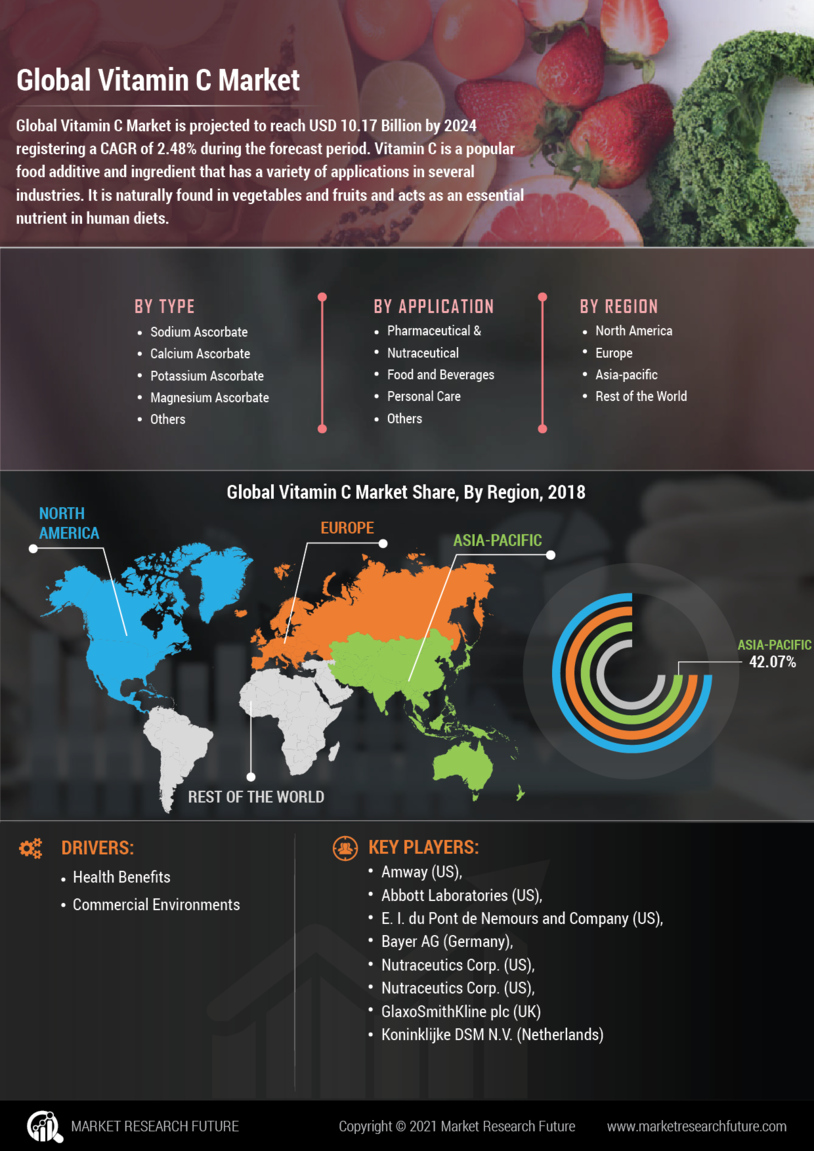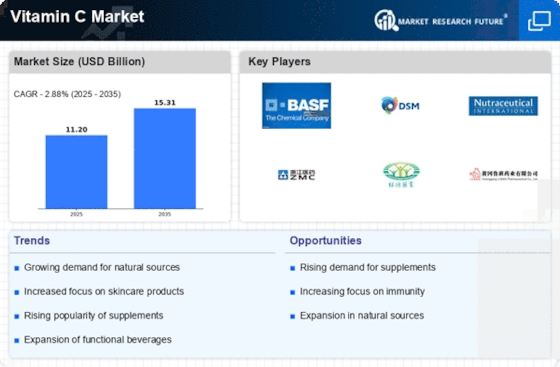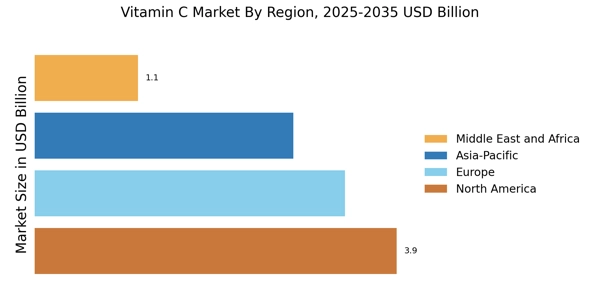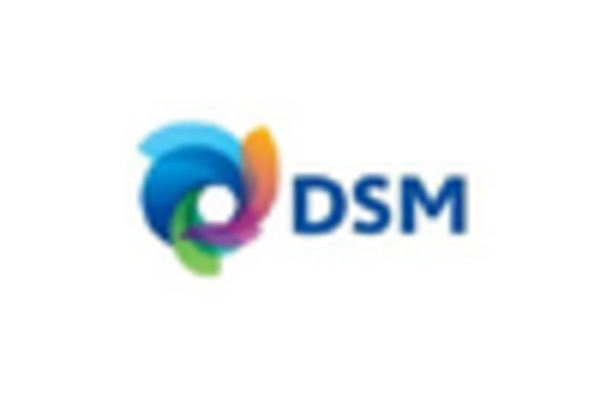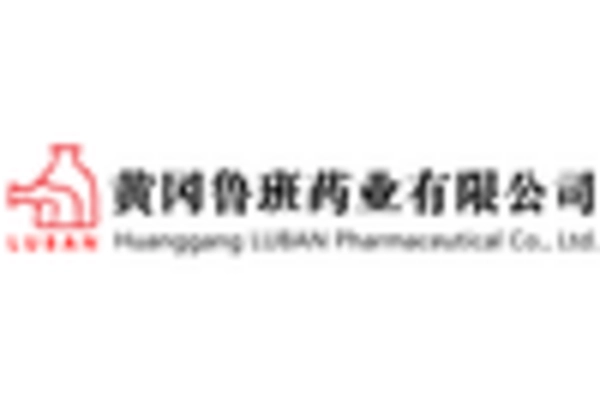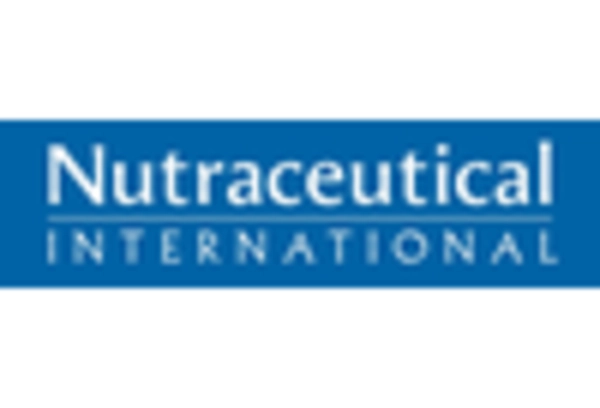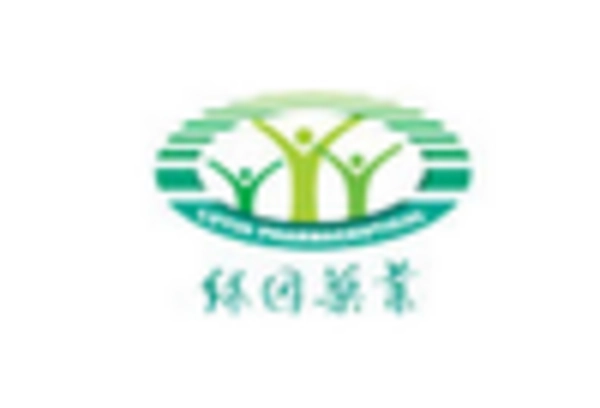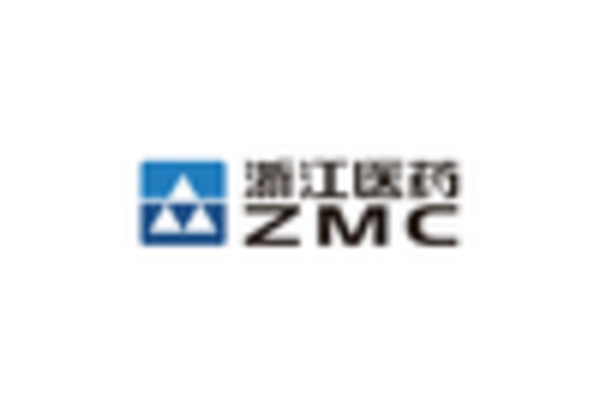Increasing Health Awareness
The rising awareness regarding health and wellness among consumers appears to be a pivotal driver for the Vitamin C Market. Individuals are increasingly seeking dietary supplements that bolster their immune systems and overall health. This trend is reflected in the growing demand for Vitamin C Market products, which are perceived as essential for maintaining health. According to recent data, the Vitamin C Market supplement segment has witnessed a compound annual growth rate of approximately 8%, indicating a robust market trajectory. As consumers become more health-conscious, the Vitamin C Market is likely to expand, driven by the demand for products that promote vitality and well-being.
Expansion of Functional Foods
The proliferation of functional foods, which are designed to provide health benefits beyond basic nutrition, is significantly influencing the Vitamin C Market. These foods often incorporate Vitamin C Market as a key ingredient, appealing to consumers who prioritize health-enhancing products. The market for functional foods is projected to grow at a rate of 7% annually, suggesting a strong inclination towards products that support immune function and overall health. This trend indicates that the Vitamin C Market may experience increased demand as manufacturers innovate and create new products that cater to health-conscious consumers seeking functional benefits.
Growth of E-commerce Platforms
The rapid growth of e-commerce platforms is transforming the Vitamin C Market by providing consumers with convenient access to a wide range of Vitamin C Market products. Online shopping has become increasingly popular, allowing consumers to compare products, read reviews, and make informed purchasing decisions from the comfort of their homes. Data suggests that e-commerce sales in the dietary supplement sector are expected to grow by 15% annually, indicating a shift in consumer purchasing behavior. This trend may lead to increased visibility and sales for Vitamin C Market products, as e-commerce platforms facilitate greater market reach and consumer engagement.
Rising Demand for Natural Ingredients
The growing preference for natural and organic ingredients among consumers is reshaping the Vitamin C Market. As individuals become more discerning about the products they consume, there is a marked shift towards Vitamin C Market sourced from natural origins, such as fruits and vegetables. This trend is supported by data indicating that the natural Vitamin C Market segment is expected to grow by 10% over the next five years. Consequently, manufacturers are adapting their offerings to align with consumer preferences, which may lead to a more diverse range of Vitamin C Market products in the market, further driving the industry's growth.
Technological Advancements in Production
Technological advancements in the production and extraction of Vitamin C Market are likely to play a crucial role in the Vitamin C Market. Innovations in extraction methods and formulation techniques can enhance the bioavailability and efficacy of Vitamin C Market products. This could lead to improved product offerings that meet the evolving needs of consumers. Furthermore, advancements in manufacturing processes may reduce production costs, allowing for competitive pricing in the market. As a result, the Vitamin C Market may benefit from increased accessibility and affordability of high-quality Vitamin C Market products, potentially expanding its consumer base.
